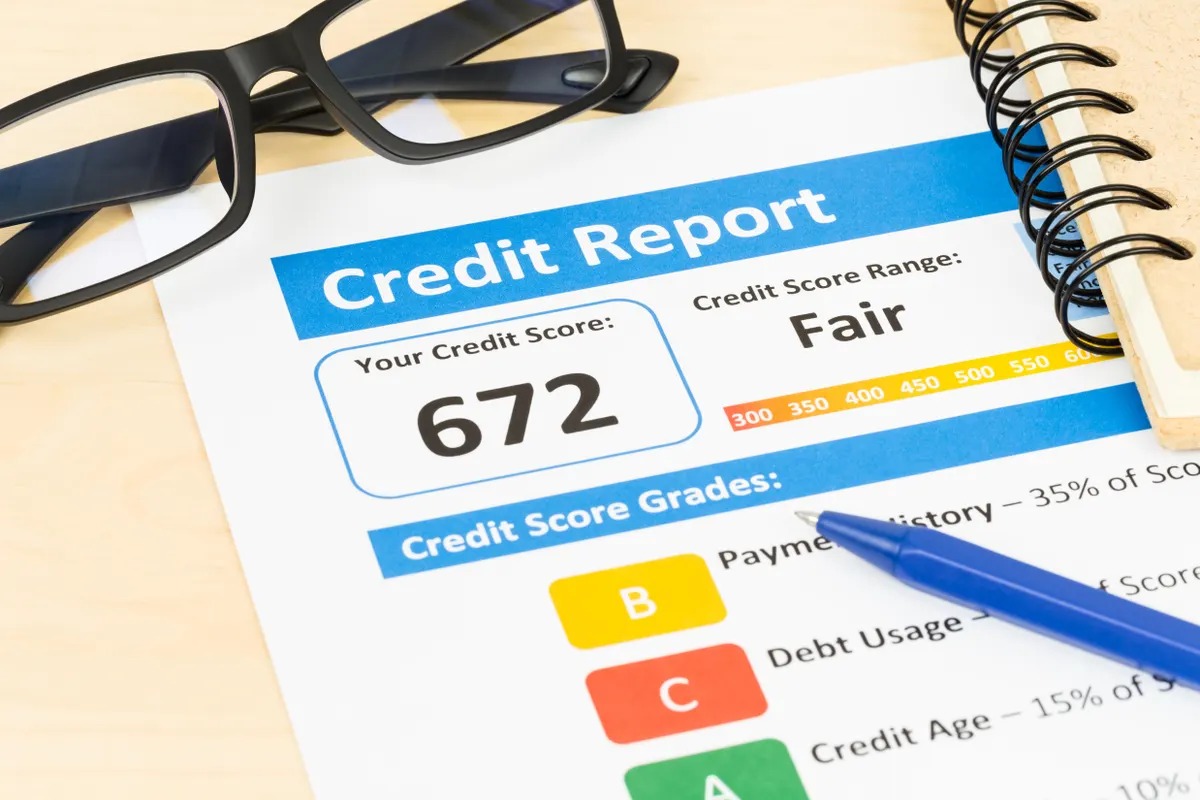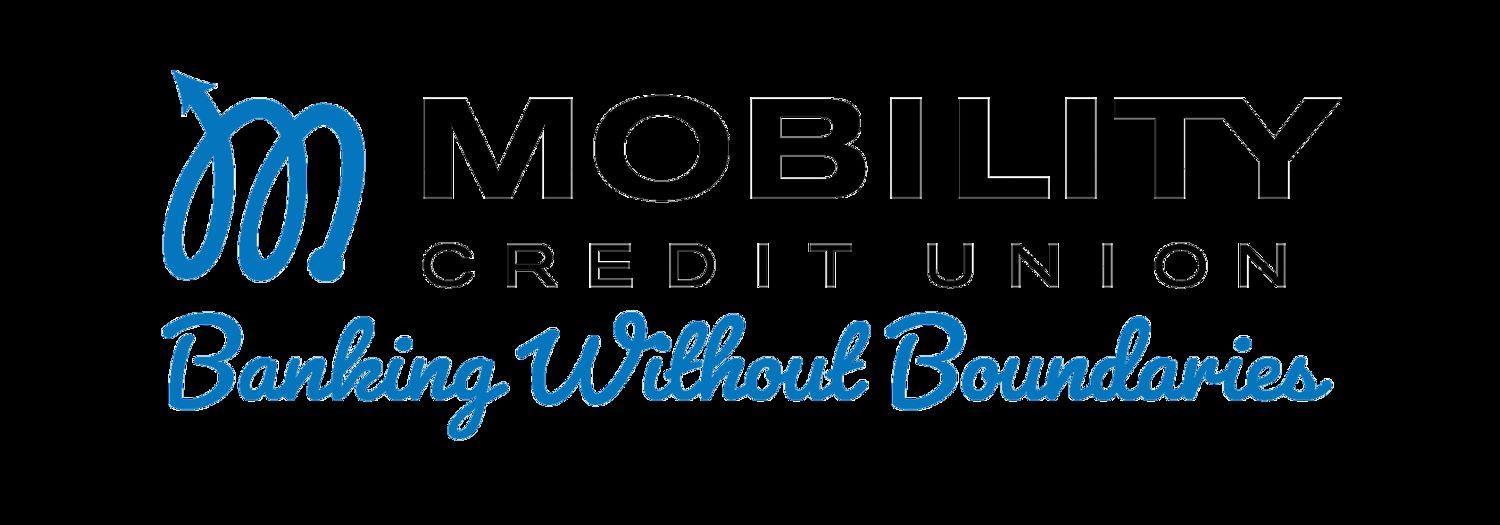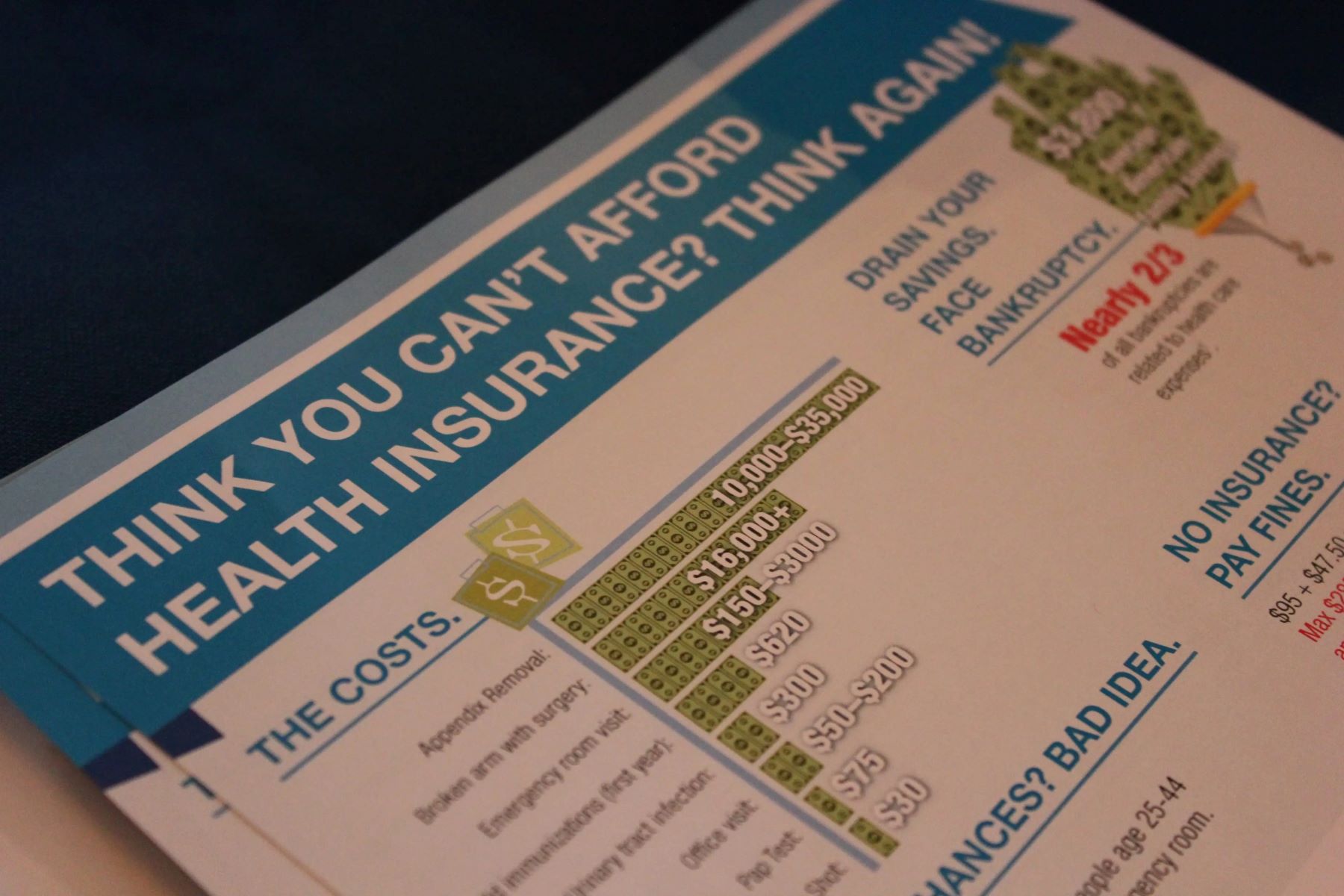Home>Finance>How To Open A Business Bank Account With Bad Credit


Finance
How To Open A Business Bank Account With Bad Credit
Published: January 8, 2024
Learn how to open a business bank account, even with bad credit. Unlock your finance potential and take control of your business's financial future.
(Many of the links in this article redirect to a specific reviewed product. Your purchase of these products through affiliate links helps to generate commission for LiveWell, at no extra cost. Learn more)
Table of Contents
- Introduction
- Why Having a Business Bank Account is Important
- Understanding the Impact of Bad Credit on Opening a Business Bank Account
- Tips for Opening a Business Bank Account with Bad Credit
- Researching Different Banks and Financial Institutions
- Gather Required Documents and Information
- Applying for a Business Bank Account
- Managing Your Business Bank Account with Bad Credit
- Building and Improving Your Credit Score
- Conclusion
Introduction
Starting a business requires careful planning and a solid financial foundation, and one essential aspect of managing your business finances is opening a business bank account. A business bank account not only helps separate your personal and business finances but also provides a range of benefits such as simplified accounting, professional credibility, and access to essential banking services. However, if you have a bad credit history, you might face challenges when it comes to opening a business bank account.
Bad credit can be the result of various factors, such as late payments, high debt utilization, or past financial difficulties. It can affect your ability to secure loans, obtain credit cards, and even open a business bank account. Many traditional banks and financial institutions have strict eligibility criteria and credit checks in place, making it difficult for individuals with bad credit to access their services.
Fortunately, there are still options available for entrepreneurs with bad credit who are looking to open a business bank account. This article will explore the importance of having a business bank account, the impact of bad credit on opening one, and provide valuable tips for opening and managing a business bank account with bad credit. Whether you’re a seasoned business owner or just starting out, this information will help you navigate the process with confidence and improve your financial standing along the way.
Why Having a Business Bank Account is Important
When starting or running a business, having a dedicated business bank account is crucial for several reasons. Let’s explore some of the key reasons why having a business bank account is important:
- Separation of Personal and Business Finances: One of the main benefits of having a business bank account is that it helps separate your personal and business finances. Mixing personal and business funds can lead to confusion and make it challenging to track business expenses, calculate profit or loss, and file taxes correctly. A business bank account ensures that your business finances are organized and separate from your personal finances, making it easier to manage and monitor your cash flow.
- Simplified Accounting: Maintaining accurate financial records is crucial for any business. With a business bank account, you can easily track and record your business expenses and income. Most business bank accounts provide access to online banking platforms that allow you to view transactions, download statements, and generate reports. This simplifies bookkeeping and makes it easier to reconcile your accounts, especially during tax season.
- Professional Credibility: Having a business bank account gives your business a more professional image. When dealing with clients, suppliers, or investors, you can provide them with your business account information, reinforcing that you are operating as a legitimate and trustworthy entity. It adds credibility to your brand and helps build trust with stakeholders.
- Accepting Payments: A business bank account allows you to accept payments from customers in various ways. You can receive payments through checks, wire transfers, direct debit or credit card payments, and online platforms. Having a dedicated business bank account provides convenience and flexibility in managing incoming payments, which is essential for the growth and success of your business.
- Access to Essential Banking Services: Business bank accounts often come with a range of additional services tailored to meet the needs of businesses. These services may include merchant services for accepting credit card payments, business loans, business credit cards, and overdraft facilities. These services can help your business manage cash flow, secure financing when needed, and take advantage of credit options to support growth and expansion.
In summary, a business bank account offers numerous benefits, including separating personal and business finances, simplifying accounting, enhancing professional credibility, accepting payments, and accessing essential banking services. By having a dedicated business bank account, you can streamline your financial management, operate more efficiently, and position your business for long-term success.
Understanding the Impact of Bad Credit on Opening a Business Bank Account
When it comes to opening a business bank account, your credit history plays a significant role. Bad credit can have a negative impact on your ability to open a business bank account and can present several challenges. Here are a few ways that bad credit can affect opening a business bank account:
- Increased Risk Assessment: Banks and financial institutions use credit scores and credit reports to assess the risk of potential customers. If you have a poor credit history, it indicates a higher risk of defaulting on loans or other financial obligations. As a result, banks may be hesitant to extend their services to individuals with bad credit, including opening a business bank account.
- Higher Fees and Limited Features: Some banks may be willing to offer business bank accounts to individuals with bad credit but at the cost of higher fees and limited features. They might require a higher minimum balance or charge higher transaction fees to compensate for the perceived risk. Additionally, you might not have access to all of the services and benefits that come with a standard business bank account.
- Difficulty Obtaining Business Credit: Having bad credit can make it challenging to obtain business credit or financing from lenders. Banks often review your credit history when considering loan applications or extending lines of credit. If your credit is not in good standing, it might be difficult to secure the necessary funding for your business, limiting your growth opportunities.
- Limited Banking Options: Traditional banks might have stricter criteria for opening a business bank account, making it more difficult for individuals with bad credit to gain access to their services. However, alternative banking options, such as online banks or credit unions, may have more flexible requirements and be more willing to work with individuals with bad credit. It’s important to explore these alternatives to increase your chances of opening a business bank account.
- Personal Guarantees or Collateral Requirements: In some cases, banks may require a personal guarantee or collateral to open a business bank account if you have bad credit. This means that you will have to personally guarantee the bank’s security or provide assets as collateral to secure the account. This can add an extra level of risk and responsibility on your part.
Understanding the impact of bad credit on opening a business bank account is essential for realistic financial planning. While bad credit can present obstacles, it is not an insurmountable barrier. By being aware of these challenges, you can take proactive steps to improve your credit and explore alternative banking options that are more accommodating to individuals with bad credit.
Tips for Opening a Business Bank Account with Bad Credit
Although bad credit can pose challenges when opening a business bank account, there are strategies you can employ to increase your chances of success. Here are some valuable tips for opening a business bank account with bad credit:
- Research Different Banks and Financial Institutions: Start by researching banks and financial institutions that are more lenient towards individuals with bad credit or offer specialized business bank accounts for those with less-than-perfect credit. Look for banks that have a history of providing banking services to small businesses or offer second chance business bank accounts specifically designed for individuals with bad credit.
- Gather Required Documents and Information: Be prepared with all the necessary documents and information when applying for a business bank account. This typically includes personal identification documents, such as your driver’s license or passport, your business’s legal documentation, such as the articles of incorporation or DBA certificate, and any financial statements or documentation that demonstrate your business’s financial stability.
- Apply for a Secured Business Credit Card: A secured business credit card can be a useful tool for demonstrating financial responsibility and rebuilding your credit. Use it responsibly, making regular payments on time, and keeping your credit utilization low. Over time, this can help improve your credit score, making it easier to open a business bank account in the future.
- Consider Online Banks: Online banks often have more lenient requirements and offer a wider range of banking services for businesses. They may have a simpler application process, lower fees, and more flexible criteria for opening a business bank account. Explore online banking options to increase your chances of finding a suitable banking solution for your business.
- Explore Credit Unions: Credit unions are member-owned financial institutions that often have more relaxed eligibility criteria compared to traditional banks. They may be more willing to work with individuals with bad credit and offer business banking services. Look for credit unions in your area that cater to small businesses and inquire about their account options.
- Seek Professional Advice: If you’re struggling to find a bank that will open a business bank account for you, consider seeking professional advice from a financial advisor or a credit counseling service. They can provide guidance on repairing your credit, improving your financial standing, and finding the right banking solution for your business.
Remember, opening a business bank account with bad credit might require some extra effort and research, but it is not impossible. By exploring different banks, gathering the necessary documents, and considering alternative banking options, you can find a financial institution that will work with you and help you establish a dedicated business bank account.
Researching Different Banks and Financial Institutions
When you have bad credit and are looking to open a business bank account, it’s important to research and identify banks and financial institutions that are more open to working with individuals in similar situations. Here are some key steps to consider when researching different banks and financial institutions:
- Check Local Banks: Start by looking into local banks in your area. Visit their websites or reach out to their customer service to inquire about their requirements for opening a business bank account. Some local banks may have more flexible eligibility criteria and be more willing to work with individuals with bad credit.
- Explore Online Banks: Online banks often have lower overhead costs and more streamlined processes, which can result in more flexible banking options. Take the time to research online banks that offer business bank accounts and compare their services, fees, and eligibility criteria. Look for customer reviews and ratings to gauge their reputation and reliability.
- Consider Credit Unions: Credit unions are member-owned financial cooperatives that can offer a range of banking services, including business bank accounts. They often have more personalized customer service and may be more willing to work with individuals with bad credit. Research local credit unions that have a focus on small business banking and inquire about their account options.
- Read Reviews and Testimonials: Look for reviews and testimonials from other business owners who have had experience with different banks and financial institutions. This can provide valuable insights into their customer service, account features, and overall experience. Pay attention to reviews from individuals with bad credit to understand how accommodating these institutions are to individuals in similar situations.
- Inquire about Second Chance Bank Accounts: Some banks offer “second chance” bank accounts that are specifically designed for individuals with a troubled credit history. These accounts may have certain restrictions or higher fees, but they can provide an opportunity for you to establish a banking relationship and demonstrate financial responsibility. Inquire with banks if they offer such accounts and what their requirements are.
- Consider Digital Wallets and Fintech Companies: Digital wallets and fintech companies are growing in popularity and offer alternative banking solutions. Some of these platforms offer business account options that are more accessible to individuals with bad credit. Explore options such as PayPal, Square, or Stripe, which provide online payment processing and business account features.
While researching different banks and financial institutions, it’s important to consider their eligibility criteria, fee structures, account features, and customer service. Take the time to compare your options and choose a bank that aligns with your business needs and is willing to work with you, even with bad credit. Remember, finding the right banking partner is key to managing your business finances effectively and positioning your business for growth and success.
Gather Required Documents and Information
When opening a business bank account, regardless of your credit history, it is important to gather all the necessary documents and information to ensure a smooth application process. Having these documents prepared ahead of time will save you from unnecessary delays or the risk of being denied due to missing information. Here are the essential documents and information you will typically need to open a business bank account:
- Personal Identification: Banks require personal identification documents to verify your identity. These documents may include your driver’s license, passport, social security number, or any other government-issued identification that is commonly accepted.
- Business Documentation: You will need to provide legal documentation that proves the existence of your business. This may include your articles of incorporation, partnership agreement, DBA certificate (Doing Business As), or any other legal documentation depending on the type of business structure you have. Contact your local government or business registration authority for the specific requirements and necessary paperwork.
- Tax Identification Number: Depending on your country or region, you will need to provide your business’s tax identification number. In the United States, for example, this would be your Employer Identification Number (EIN) issued by the Internal Revenue Service (IRS).
- Proof of Address: Banks may require proof of your business address. This can be done by providing a utility bill, lease agreement, or any other official documentation that displays your business name and address.
- Financial Statements: Some banks may request financial statements, such as profit and loss statements, balance sheets, or tax returns. These documents provide a snapshot of your business’s financial health and help the bank assess your eligibility for a business bank account.
- Business Plan: While not always required, having a well-prepared business plan can demonstrate your commitment and preparedness to the bank. It provides an overview of your business, including your goals, target market, financial projections, and strategies for growth. It can be particularly beneficial for startups or businesses with limited operating history.
- Business Licenses and Permits: Depending on your industry and location, you may need to provide copies of your business licenses and permits. This demonstrates that your business is operating legally and in compliance with local regulations.
It is essential to contact the bank or financial institution prior to applying to gather their specific requirements. Each bank may have additional documentation needs or variations in their application process. By being prepared with all the required documents and information, you can expedite the application process and increase your chances of successfully opening a business bank account, even with bad credit.
Applying for a Business Bank Account
Once you have gathered all the necessary documents and information, it’s time to apply for a business bank account. While the application process may vary slightly depending on the bank or financial institution, here are the general steps to follow when applying for a business bank account:
- Choose a Bank: Based on your research, select a bank or financial institution that aligns with your business needs, offers suitable services, and is open to working with individuals with bad credit. Consider factors such as fees, account features, customer service, and convenience.
- Schedule an Appointment: Contact the bank and schedule an appointment to open a business bank account. This will ensure that a representative is available to assist you and that you have dedicated time for the application process.
- Meet the Bank Representative: At the appointment, you will meet with a bank representative who will guide you through the application process. Bring all the required documents and information that you have gathered to provide as needed.
- Complete the Application Form: The bank representative will provide you with an application form to complete. This form will typically require details about your business, its legal structure, ownership information, and financial information. Be thorough and accurate when filling out the form.
- Provide Required Documents: Present the bank representative with all the necessary documents and information requested for opening a business bank account. This may include personal identification, business documentation, tax identification number, proof of address, financial statements, and any other specific requirements outlined by the bank.
- Agree to Terms and Conditions: Read and understand the terms and conditions associated with the business bank account. This includes any fees, account features, and applicable banking policies. If you have any questions, ask the bank representative for clarification.
- Submit the Application: Once you have completed the application form and provided all the required documents, submit your application to the bank representative. They will review your application and documentation, and may ask for any additional information or clarification, if necessary.
- Wait for Account Approval: The bank will review your application and conduct the necessary checks, including credit checks and verification of the provided information. Depending on the bank’s internal processes, this approval process can take some time. Be patient and await confirmation of your account’s approval.
- Activate and Fund Your Account: Once your business bank account is approved, you will receive information on how to activate your account and make an initial deposit. Follow the instructions provided by the bank to activate your account and begin using it for your business operations.
Remember, the application process for a business bank account may vary depending on the bank’s requirements and procedures. It’s crucial to reach out to the specific bank beforehand to understand their application process, required documents, and any additional steps that may be involved. By being prepared and following the guidelines provided by the bank, you can increase your chances of a successful application and open a business bank account that suits your needs, even with bad credit.
Managing Your Business Bank Account with Bad Credit
Once you have successfully opened a business bank account despite having bad credit, it is essential to manage it effectively to improve your financial standing and establish a positive relationship with the bank. Here are some tips for managing your business bank account with bad credit:
- Monitor Your Account Regularly: Keep a close eye on your business bank account by regularly reviewing your transactions, balances, and statements. This allows you to track your income and expenses, identify any errors or discrepancies, and maintain accurate financial records.
- Create and Stick to a Budget: Develop a budget that outlines your expected revenue and expenses. This helps you manage your cash flow effectively and avoid overspending. By adhering to your budget, you can ensure that you have sufficient funds to cover your business needs while also working towards improving your creditworthiness.
- Make Prompt Payments: Pay your bills, invoices, and loan installments on time. Consistently making prompt payments demonstrates financial responsibility and can help improve your creditworthiness over time. Consider setting up automatic payments or reminders to ensure you do not miss any due dates.
- Build Relationships with Your Bank: Cultivate a strong relationship with your bank by regularly communicating with your account manager or representative. They can provide guidance, answer questions, and offer solutions tailored to your specific situation. Building a positive relationship with your bank can also open doors for future financial opportunities as your business grows.
- Utilize Available Banking Services: Take advantage of the services and features offered by your business bank account. This may include features like online banking, mobile banking, bill pay, and electronic transfers. By leveraging these services, you can streamline your financial management and have greater control over your business finances.
- Seek Professional Financial Advice: Consider seeking professional assistance from a financial advisor or credit counselor who specializes in helping individuals with bad credit. They can provide guidance on debt management, credit improvement strategies, and help you navigate financial challenges specific to your situation.
- Rebuild and Improve Your Credit: While managing your business bank account, focus on rebuilding and improving your credit. Paying your bills on time, reducing your debt, and using credit responsibly can help boost your credit score over time. Regularly review your credit reports for accuracy and address any errors or discrepancies promptly.
- Network and Seek Business Opportunities: Actively network and seek business opportunities that can help grow your revenue and improve your financial position. Collaborate with other businesses, attend industry events, and explore partnerships that can provide new avenues for growth. Expanding your business and increasing your income can strengthen your financial standing.
Managing your business bank account effectively and responsibly is crucial for improving your financial situation, even with bad credit. By adopting good financial habits, leveraging available banking services, seeking professional advice, and working towards improving your credit, you can position your business for growth and increase your chances of accessing more favorable financial opportunities in the future.
Building and Improving Your Credit Score
Having a bad credit score can limit your financial options and make it more challenging to access favorable terms on loans and credit lines. However, by taking proactive steps, you can start building and improving your credit score over time. Here are some strategies to help you build and improve your credit score:
- Pay Your Bills on Time: Consistently making timely payments on your bills and debts is one of the most effective ways to improve your credit score. Set up payment reminders or automatic payments to ensure you never miss a due date.
- Reduce Your Debt: Aim to pay down your existing debts and reduce your credit utilization ratio. Ideally, keep your credit utilization below 30% of your available credit. Lowering your debt levels shows lenders that you are managing your credit responsibly.
- Establish Trade Lines: Consider applying for a secured credit card or small business credit card to establish new trade lines. Use these cards responsibly, making consistent payments and keeping your balances low. This demonstrates your ability to handle credit and can have a positive impact on your credit score.
- Monitor Your Credit Reports: Regularly check your credit reports from the major credit bureaus – Experian, Equifax, and TransUnion. Look for any errors or discrepancies that could be negatively impacting your credit score. If you find any inaccuracies, dispute them promptly to have them corrected.
- Manage Collections and Delinquencies: If you have past-due accounts or collections, work on resolving them. Contact the creditors and negotiate payment arrangements or settlements whenever possible. While negative items may remain on your credit report for a certain period, showing efforts to resolve them can demonstrate your commitment to improving your creditworthiness.
- Use Credit Responsibly: Use credit cards and loans responsibly by not maxing out your credit limits and avoiding unnecessary debt. Having a mix of credit types, such as credit cards, loans, or a mortgage, can positively impact your credit score, as long as you manage them well.
- Establish a Positive Payment History: Consistently making on-time payments over an extended period establishes a positive payment history. A longer history of responsible credit usage can boost your credit score and demonstrate your creditworthiness to lenders.
- Seek Professional Credit Counseling: If you feel overwhelmed or struggling to improve your credit on your own, consider seeking help from a reputable credit counseling agency. They can provide personalized guidance, help you create a debt management plan, and offer strategies for improving your credit score.
Building and improving your credit score takes time and persistence. It requires responsible credit management, proactive efforts to resolve outstanding debts or collections, and a focus on maintaining a positive payment history. By implementing these strategies, you can gradually improve your creditworthiness, expand your financial options, and increase your chances of accessing more favorable terms on loans and credit lines.
Conclusion
Opening a business bank account with bad credit may present its challenges, but it is not an impossible task. By understanding the importance of having a business bank account, the impact of bad credit on opening one, and following the tips provided in this article, you can navigate the process effectively and establish a dedicated business banking relationship. Although some traditional banks may have strict eligibility criteria, alternative banking options such as online banks and credit unions can provide more flexibility and options for individuals with bad credit.
Remember to research different banks and financial institutions that are willing to work with individuals with bad credit or offer specialized accounts for those in similar situations. Gather all the necessary documents and information required for your business bank account application and be prepared to provide additional documentation if needed. Once your account is approved, actively manage and monitor your business bank account, make prompt payments, and seek opportunities to improve your credit score. Building and improving your credit will not only benefit your business banking relationship but also open up more financial opportunities in the future.
Overall, opening a business bank account with bad credit may require some extra effort and research, but it is an important step in managing your business finances and establishing credibility. With determination and responsible financial practices, you can overcome the challenges and set your business on a path to success.














